- Home
- Roald Dahl
Cruelty
Cruelty Read online
Roald Dahl
* * *
CRUELTY
Contents
The Butler
The Great Automatic Grammatizator
Royal Jelly
Mrs Bixby and the Colonel’s Coat
The Swan
Poison
Skin
The Princess and the Poacher
Genesis and Catastrophe
Claud’s Dog
Mr Feasey
Read More
Follow Penguin
PENGUIN BOOKS
CRUELTY
Roald Dahl is best known for his mischievous, wildly inventive stories for children. But throughout his life he was also a prolific and acclaimed writer of stories for adults. These sinister, surprising tales continue to entertain, amuse and shock generations of readers even today.
The Butler
First published in Travel and Leisure (May 1974) with the title ‘The Butler Did It’
As soon as George Cleaver had made his first million, he and Mrs Cleaver moved out of their small suburban villa into an elegant London house. They acquired a French chef called Monsieur Estragon and an English butler called Tibbs, both wildly expensive. With the help of these two experts, the Cleavers set out to climb the social ladder and began to give dinner parties several times a week on a lavish scale.
But these dinners never seemed quite to come off. There was no animation, no spark to set the conversation alight, no style at all. Yet the food was superb and the service faultless.
‘What the heck’s wrong with our parties, Tibbs?’ Mr Cleaver said to the butler. ‘Why don’t nobody never loosen up and let themselves go?’
Tibbs inclined his head to one side and looked at the ceiling. ‘I hope, sir, you will not be offended if I offer a small suggestion.’
‘What is it?’
‘It’s the wine, sir.’
‘What about the wine?’
‘Well, sir, Monsieur Estragon serves superb food. Superb food should be accompanied by superb wine. But you serve them a cheap and very odious Spanish red.’
‘Then why in heaven’s name didn’t you say so before, you twit?’ cried Mr Cleaver. ‘I’m not short of money. I’ll give them the best flipping wine in the world if that’s what they want! What is the best wine in the world?’
‘Claret, sir,’ the butler replied, ‘from the greatest châteaux in Bordeaux – Lafite, Latour, Haut-Brion, Margaux, Mouton-Rothschild and Cheval Blanc. And from only the very greatest vintage years, which are, in my opinion, 1906, 1914, 1929 and 1945. Cheval Blanc was also magnificent in 1895 and 1921, and Haut-Brion in 1906.’
‘Buy them all!’ said Mr Cleaver. ‘Fill the flipping cellar from top to bottom!’
‘I can try, sir,’ the butler said. ‘But wines like these are extremely rare and cost a fortune.’
‘I don’t give a hoot what they cost!’ said Mr Cleaver. ‘Just go out and get them!’
That was easier said than done. Nowhere in England or in France could Tibbs find any wine from 1895, 1906, 1914 or 1921. But he did manage to get hold of some twenty-nines and forty-fives. The bills for these wines were astronomical. They were in fact so huge that even Mr Cleaver began to sit up and take notice. And his interest quickly turned into outright enthusiasm when the butler suggested to him that a knowledge of wine was a very considerable social asset. Mr Cleaver bought books on the subject and read them from cover to cover. He also learned a great deal from Tibbs himself, who taught him, among other things, just how wine should properly be tasted. ‘First, sir, you sniff it long and deep, with your nose right inside the top of the glass, like this. Then you take a mouthful and you open your lips a tiny bit and suck in air, letting the air bubble through the wine. Watch me do it. Then you roll it vigorously around your mouth. And finally you swallow it.’
In due course, Mr Cleaver came to regard himself as an expert on wine, and inevitably he turned into a colossal bore. ‘Ladies and gentlemen,’ he would announce at dinner, holding up his glass, ‘this is a Margaux ’29! The greatest year of the century! Fantastic bouquet! Smells of cowslips! And notice especially the after taste and how the tiny trace of tannin gives it that glorious astringent quality! Terrific, ain’t it?’
The guests would nod and sip and mumble a few praises, but that was all.
‘What’s the matter with the silly twerps?’ Mr Cleaver said to Tibbs after this had gone on for some time. ‘Don’t none of them appreciate a great wine?’
The butler laid his head to one side and gazed upward. ‘I think they would appreciate it, sir,’ he said, ‘if they were able to taste it. But they can’t.’
‘What the heck d’ you mean, they can’t taste it?’
‘I believe, sir, that you have instructed Monsieur Estragon to put liberal quantities of vinegar in the salad-dressing.’
‘What’s wrong with that? I like vinegar.’
‘Vinegar,’ the butler said, ‘is the enemy of wine. It destroys the palate. The dressing should be made of pure olive oil and a little lemon juice. Nothing else.’
‘Hogwash!’ said Mr Cleaver.
‘As you wish, sir.’
‘I’ll say it again, Tibbs. You’re talking hogwash. The vinegar don’t spoil my palate one bit.’
‘You are very fortunate, sir,’ the butler murmured, backing out of the room.
That night at dinner, the host began to mock his butler in front of the guests. ‘Mister Tibbs,’ he said, ‘has been trying to tell me I can’t taste my wine if I put vinegar in the salad-dressing. Right, Tibbs?’
‘Yes, sir,’ Tibbs replied gravely.
‘And I told him hogwash. Didn’t I, Tibbs?’
‘Yes, sir.’
‘This wine,’ Mr Cleaver went on, raising his glass, ‘tastes to me exactly like a Château Lafite ’45, and what’s more it is a Château Lafite ’45.’
Tibbs, the butler, stood very still and erect near the sideboard, his face pale. ‘If you’ll forgive me, sir,’ he said, ‘that is not a Lafite ’45.’
Mr Cleaver swung round in his chair and stared at the butler. ‘What the heck d’you mean,’ he said. ‘There’s the empty bottles beside you to prove it!’
These great clarets, being old and full of sediment, were always decanted by Tibbs before dinner. They were served in cut-glass decanters, while the empty bottles, as is the custom, were placed on the sideboard. Right now, two empty bottles of Lafite ’45 were standing on the sideboard for all to see.
‘The wine you are drinking, sir,’ the butler said quietly, ‘happens to be that cheap and rather odious Spanish red.’
Mr Cleaver looked at the wine in his glass, then at the butler. The blood was coming to his face now, his skin was turning scarlet. ‘You’re lying, Tibbs!’ he said.
‘No sir, I’m not lying,’ the butler said. ‘As a matter of fact, I have never served you any other wine but Spanish red since I’ve been here. It seemed to suit you very well.’
‘Don’t believe him!’ Mr Cleaver cried out to his guests. ‘The man’s gone mad.’
‘Great wines,’ the butler said, ‘should be treated with reverence. It is bad enough to destroy the palate with three or four cocktails before dinner, as you people do, but when you slosh vinegar over your food into the bargain, then you might just as well be drinking dishwater.’
Ten outraged faces around the table stared at the butler. He had caught them off balance. They were speechless.
‘This,’ the butler said, reaching out and touching one of the empty bottles lovingly with his fingers, ‘this is the last of the forty-fives. The twenty-nines have already been finished. But they were glorious wines. Monsieur Estragon and I enjoyed them immensely.’
The butler bowed and walked quite slowly from the room. He crossed the hall and went out of the front d
oor of the house into the street where Monsieur Estragon was already loading their suitcases into the boot of the small car which they owned together.
The Great Automatic Grammatizator
First published in Someone Like You (1953)
‘Well, Knipe, my boy. Now that it’s all finished, I just called you in to tell you I think you’ve done a fine job.’
Adolph Knipe stood still in front of Mr Bohlen’s desk. There seemed to be no enthusiasm in him at all.
‘Aren’t you pleased?’
‘Oh yes, Mr Bohlen.’
‘Did you see what the papers said this morning?’
‘No, sir, I didn’t.’
The man behind the desk pulled a folded newspaper towards him, and began to read: ‘The building of the great automatic computing engine, ordered by the government some time ago, is now complete. It is probably the fastest electronic calculating machine in the world today. Its function is to satisfy the ever-increasing need of science, industry and administration for rapid mathematical calculation which, in the past, by traditional methods, would have been physically impossible, or would have required more time than the problems justified. The speed with which the new engine works, said Mr John Bohlen, head of the firm of electrical engineers mainly responsible for its construction, may be grasped by the fact that it can provide the correct answer in five seconds to a problem that would occupy a mathematician for a month. In three minutes, it can produce a calculation that by hand (if it were possible) would fill half a million sheets of foolscap paper. The automatic computing engine uses pulses of electricity, generated at the rate of a million a second, to solve all calculations that resolve themselves into addition, subtraction, multiplication and division. For practical purposes there is no limit to what it can do …’
Mr Bohlen glanced up at the long, melancholy face of the younger man. ‘Aren’t you proud, Knipe? Aren’t you pleased?’
‘Of course, Mr Bohlen.’
‘I don’t think I have to remind you that your own contribution, especially to the original plans, was an important one. In fact, I might go so far as to say that without you and some of your ideas, this project might still be on the drawing-boards today.’
Adolph Knipe moved his feet on the carpet, and he watched the two small white hands of his chief, the nervous fingers playing with a paper-clip, unbending it, straightening out the hairpin curves. He didn’t like the man’s hands. He didn’t like his face either, with the tiny mouth and the narrow purple-coloured lips. It was unpleasant the way only the lower lip moved when he talked.
‘Is anything bothering you, Knipe? Anything on your mind?’
‘Oh no, Mr Bohlen. No.’
‘How would you like to take a week’s holiday? Do you good. You’ve earned it.’
‘Oh, I don’t know, sir.’
The older man waited, watching this tall, thin person who stood so sloppily before him. He was a difficult boy. Why couldn’t he stand up straight? Always drooping and untidy, with spots on his jacket, and hair falling all over his face.
‘I’d like you to take a holiday, Knipe. You need it.’
‘All right, sir. If you wish.’
‘Take a week. Two weeks if you like. Go somewhere warm. Get some sunshine. Swim. Relax. Sleep. Then come back, and we’ll have another talk about the future.’
Adolph Knipe went home by bus to his two-room apartment. He threw his coat on the sofa, poured himself a drink of whisky, and sat down in front of the typewriter that was on the table. Mr Bohlen was right. Of course he was right. Except that he didn’t know the half of it. He probably thought it was a woman. Whenever a young man gets depressed, everybody thinks it’s a woman.
He leaned forward and began to read through the half-finished sheet of typing still in the machine. It was headed ‘A Narrow Escape’, and it began: ‘The night was dark and stormy, the wind whistled in the trees, the rain poured down like cats and dogs …’
Adolph Knipe took a sip of whisky, tasting the malty-bitter flavour, feeling the trickle of cold liquid as it travelled down his throat and settled in the top of his stomach, cool at first, then spreading and becoming warm, making a little area of warmness in the gut. To hell with Mr John Bohlen anyway. And to hell with the great electrical computing machine. To hell with …
At exactly that moment, his eyes and mouth began slowly to open, in a sort of wonder, and slowly he raised his head and became still, absolutely motionless, gazing at the wall opposite with this look that was more perhaps of astonishment than of wonder, but quite fixed now, unmoving, and remaining thus for forty, fifty, sixty seconds. Then gradually (the head still motionless), a subtle change spreading over the face, astonishment becoming pleasure, very slight at first, only around the corners of the mouth, increasing gradually, spreading out until at last the whole face was open wide and shining with extreme delight. It was the first time Adolph Knipe had smiled in many, many months.
‘Of course,’ he said, speaking aloud, ‘it’s completely ridiculous.’ Again he smiled, raising his upper lip and baring his teeth in a queerly sensual manner.
‘It’s a delicious idea, but so impracticable it doesn’t really bear thinking about at all.’
From then on, Adolph Knipe began to think about nothing else. The idea fascinated him enormously, at first because it gave him a promise – however remote – of revenging himself in a most devilish manner upon his greatest enemies. From this angle alone, he toyed idly with it for perhaps ten or fifteen minutes; then all at once he found himself examining it quite seriously as a practical possibility. He took paper and made some preliminary notes. But he didn’t get far. He found himself, almost immediately, up against the old truth that a machine, however ingenious, is incapable of original thought. It can handle no problems except those that resolve themselves into mathematical terms – problems that contain one, and only one, correct answer.
This was a stumper. There didn’t seem any way around it. A machine cannot have a brain. On the other hand, it can have a memory, can it not? Their own electronic calculator had a marvellous memory. Simply by converting electric pulses, through a column of mercury, into supersonic waves, it could store away at least a thousand numbers at a time, extracting any one of them at the precise moment it was needed. Would it not be possible, therefore, on this principle, to build a memory section of almost unlimited size?
Now what about that?
Then suddenly, he was struck by a powerful but simple little truth, and it was this: That English grammar is governed by rules that are almost mathematical in their strictness! Given the words, and given the sense of what is to be said, then there is only one correct order in which those words can be arranged.
No, he thought, that isn’t quite accurate. In many sentences there are several alternative positions for words and phrases, all of which may be grammatically correct. But what the hell. The theory itself is basically true. Therefore, it stands to reason that an engine built along the lines of the electric computer could be adjusted to arrange words (instead of numbers) in their right order according to the rules of grammar. Give it the verbs, the nouns, the adjectives, the pronouns, store them in the memory section as a vocabulary, and arrange for them to be extracted as required. Then feed it with plots and leave it to write the sentences.
There was no stopping Knipe now. He went to work immediately, and there followed during the next few days a period of intense labour. The living-room became littered with sheets of paper: formulae and calculations; lists of words, thousands and thousands of words; the plots of stories, curiously broken up and subdivided; huge extracts from Roget’s Thesaurus; pages filled with the first names of men and women; hundreds of surnames taken from the telephone directory; intricate drawings of wires and circuits and switches and thermionic valves; drawings of machines that could punch holes of different shapes in little cards, and of a strange electric typewriter that could type ten thousands words a minute. Also a kind of control panel with a series of small push-button
s, each one labelled with the name of a famous American magazine.
He was working in a mood of exultation, prowling around the room amidst this littering of paper, rubbing his hands together, talking out loud to himself; and sometimes, with a sly curl of the nose he would mutter a series of murderous imprecations in which the word ‘editor’ seemed always to be present. On the fifteenth day of continuous work, he collected the papers into two large folders which he carried – almost at a run – to the offices of John Bohlen Inc., electrical engineers.
Mr Bohlen was pleased to see him back.
‘Well, Knipe, good gracious me, you look a hundred per cent better. You have a good holiday? Where’d you go?’
He’s just as ugly and untidy as ever, Mr Bohlen thought. Why doesn’t he stand up straight? He looks like a bent stick. ‘You look a hundred per cent better, my boy.’ I wonder what he’s grinning about. Every time I see him, his ears seem to have got larger.
Adolph Knipe placed the folders on the desk. ‘Look, Mr Bohlen!’ he cried. ‘Look at these!’
Then he poured out his story. He opened the folders and pushed the plans in front of the astonished little man. He talked for over an hour, explaining everything, and when he had finished, he stepped back, breathless, flushed, waiting for the verdict.
‘You know what I think, Knipe? I think you’re nuts.’ Careful now, Mr Bohlen told himself. Treat him carefully. He’s valuable, this one is. If only he didn’t look so awful, with that long horse face and the big teeth. The fellow had ears as big as rhubarb leaves.
‘But Mr Bohlen! It’ll work! I’ve proved to you it’ll work! You can’t deny that!’
‘Take it easy now, Knipe. Take it easy, and listen to me.’
Adolph Knipe watched his man, disliking him more every second.
‘This idea,’ Mr Bohlen’s lower lip was saying, ‘is very ingenious – I might almost say brilliant – and it only goes to confirm my opinion of your abilities, Knipe. But don’t take it too seriously. After all, my boy, what possible use can it be to us? Who on earth wants a machine for writing stories? And where’s the money in it, anyway? Just tell me that.’

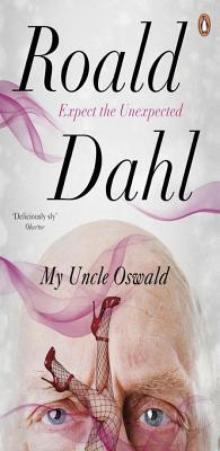 My Uncle Oswald
My Uncle Oswald The Best of Roald Dahl
The Best of Roald Dahl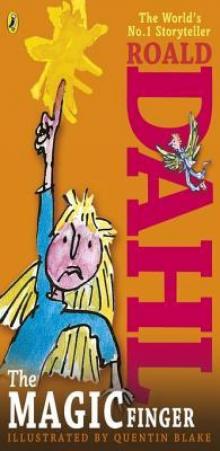 The Magic Finger
The Magic Finger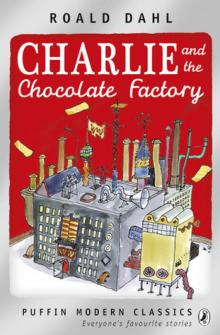 Charlie and the Chocolate Factory
Charlie and the Chocolate Factory Fantastic Mr Fox
Fantastic Mr Fox Matilda
Matilda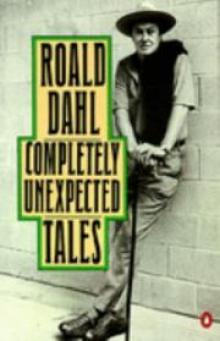 Completely Unexpected Tales: Tales of the Unexpected. More Tales of the Unexpected
Completely Unexpected Tales: Tales of the Unexpected. More Tales of the Unexpected The Wonderful Story of Henry Sugar and Six More
The Wonderful Story of Henry Sugar and Six More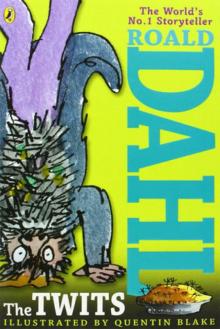 The Twits
The Twits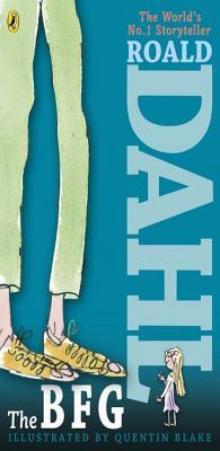 The BFG
The BFG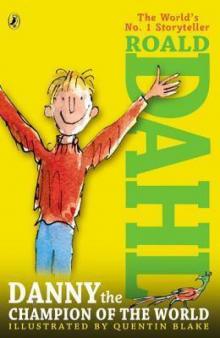 Danny the Champion of the World
Danny the Champion of the World The Witches
The Witches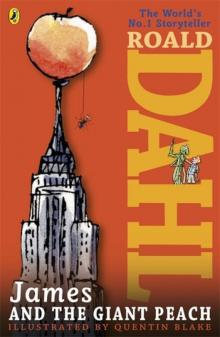 James and the Giant Peach
James and the Giant Peach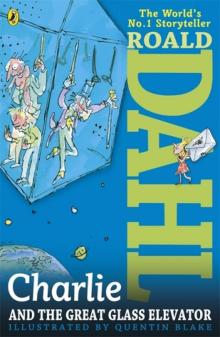 Charlie and the Great Glass Elevator
Charlie and the Great Glass Elevator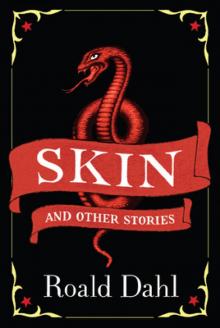 Skin and Other Stories
Skin and Other Stories Kiss Kiss
Kiss Kiss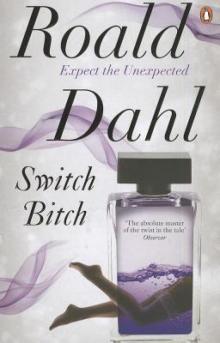 Switch Bitch
Switch Bitch The Giraffe and the Pelly and Me
The Giraffe and the Pelly and Me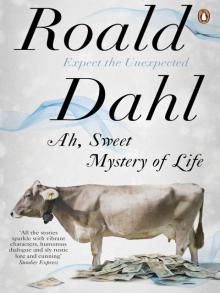 Ah, Sweet Mystery of Life
Ah, Sweet Mystery of Life Fear
Fear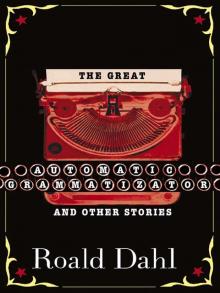 The Great Automatic Grammatizator and Other Stories
The Great Automatic Grammatizator and Other Stories Someone Like You
Someone Like You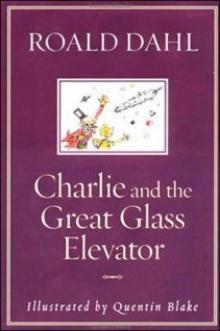 Charlie and the Great Glass Elevator c-2
Charlie and the Great Glass Elevator c-2 More About Boy
More About Boy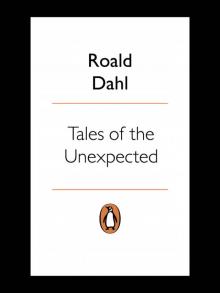 Tales of the Unexpected
Tales of the Unexpected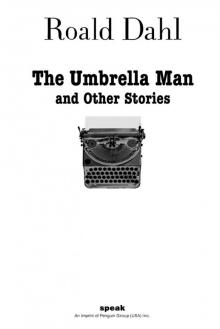 The Umbrella Man and Other Stories
The Umbrella Man and Other Stories Dirty Beasts
Dirty Beasts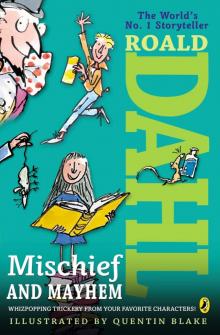 Roald Dahl's Mischief and Mayhem
Roald Dahl's Mischief and Mayhem The Collected Short Stories of Roald Dahl, Volume 1
The Collected Short Stories of Roald Dahl, Volume 1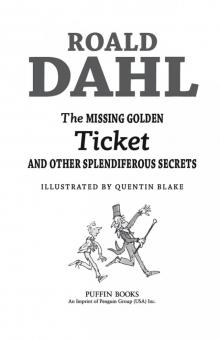 The Missing Golden Ticket and Other Splendiferous Secrets
The Missing Golden Ticket and Other Splendiferous Secrets Billy and the Minpins
Billy and the Minpins Over to You
Over to You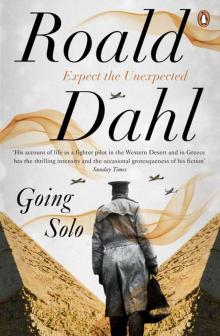 Going Solo
Going Solo Deception
Deception War
War Man from the South ee-3
Man from the South ee-3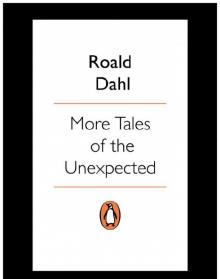 More Tales of the Unexpected
More Tales of the Unexpected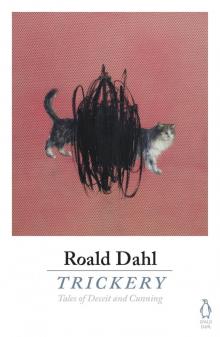 Trickery
Trickery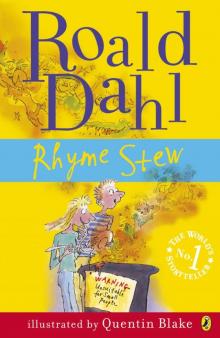 Rhyme Stew
Rhyme Stew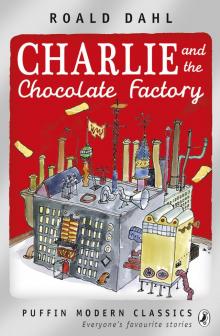 Charlie and the Chocolate Factory (Puffin Modern Classics relaunch)
Charlie and the Chocolate Factory (Puffin Modern Classics relaunch)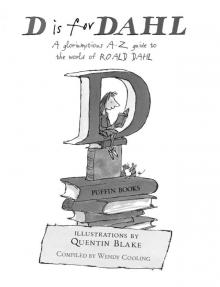 D is for Dahl
D is for Dahl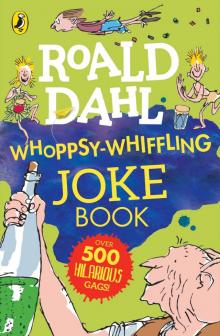 Roald Dahl Whoppsy-Whiffling Joke Book
Roald Dahl Whoppsy-Whiffling Joke Book Spotty Powder and other Splendiferous Secrets
Spotty Powder and other Splendiferous Secrets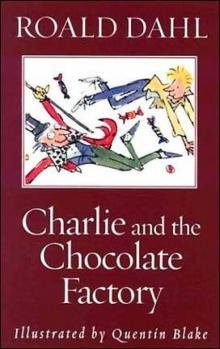 Charlie and the Chocolate Factory c-1
Charlie and the Chocolate Factory c-1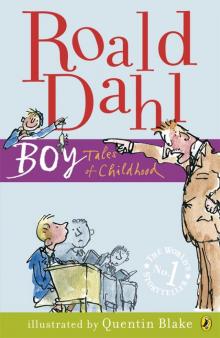 Boy
Boy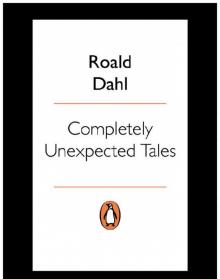 Completely Unexpected Tales
Completely Unexpected Tales Madness
Madness Innocence
Innocence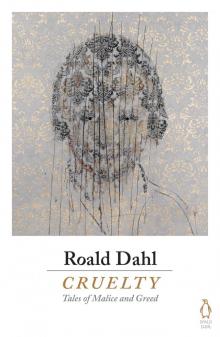 Cruelty
Cruelty George's Marvellous Medicine
George's Marvellous Medicine